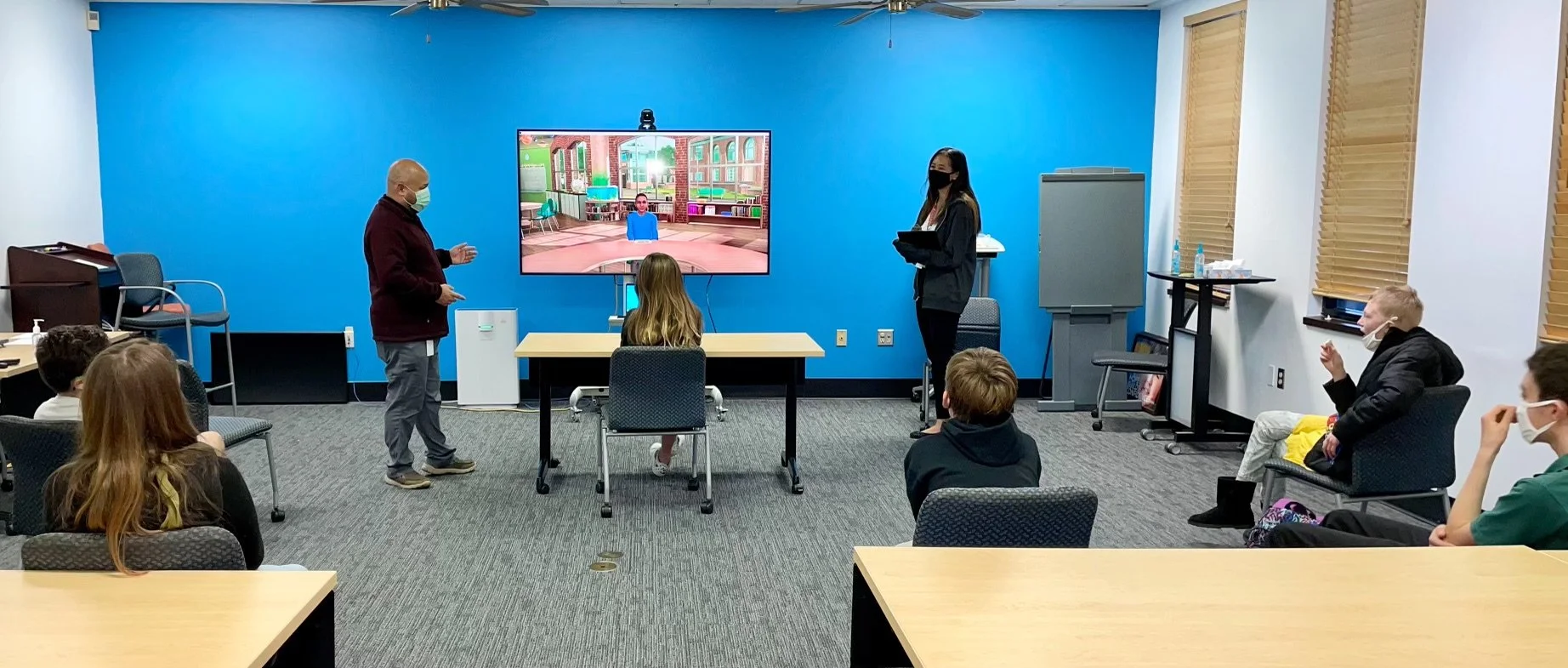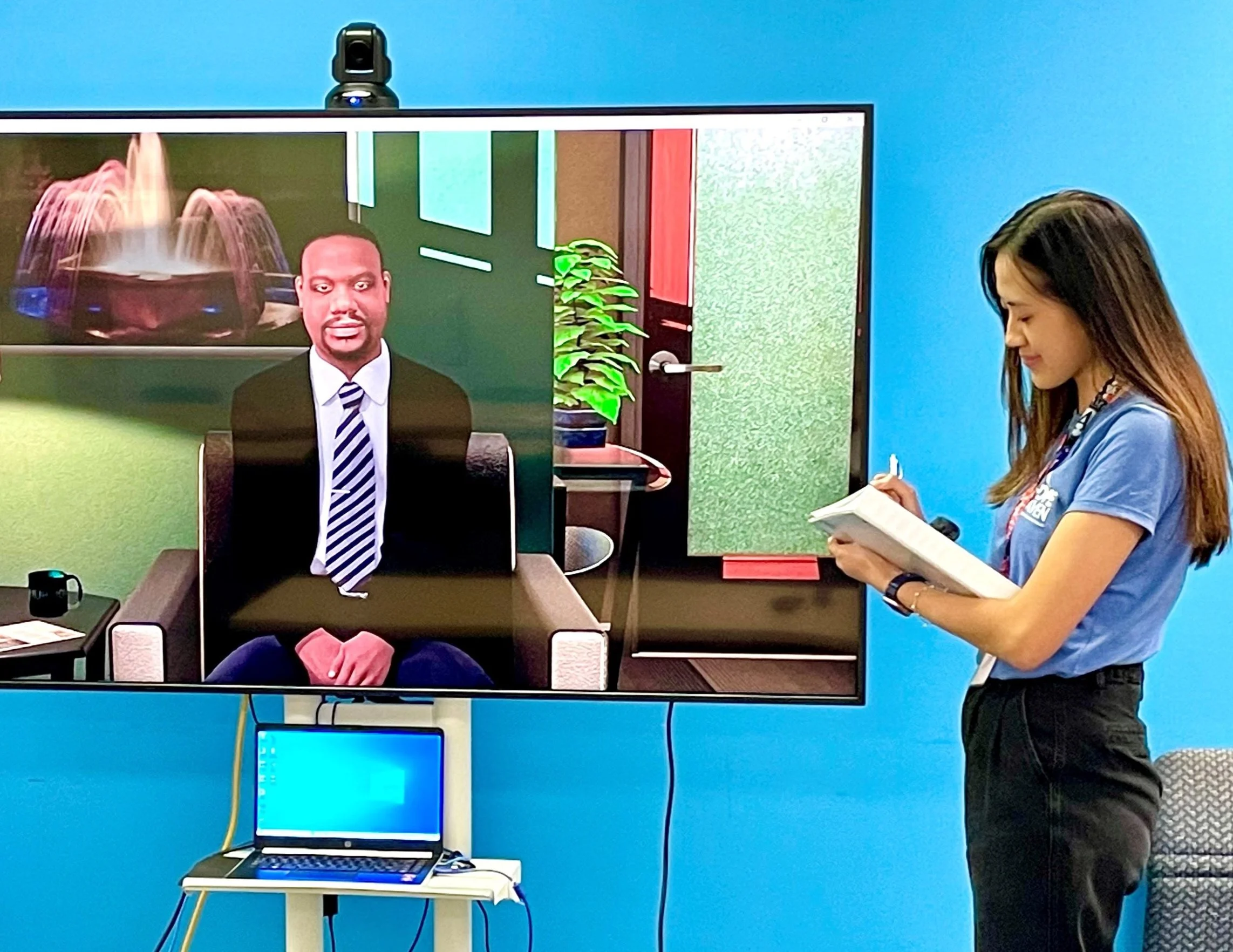CONTEXTUAL COACHING HELPS STUDENTS INTERACT MORE CONFIDENTLY
Interacting with others may be uncomfortable, so it takes practice. For most, it eventually becomes second-nature; a person notches daily experiences just by talking, listening, and engaging in the back-and-forth with other people in various roles. Each of those experiences helps build a base of lifelong communication skills.
For youngsters with physical, emotional or behavioral challenges, though, communicating takes more effort. There might be perceptual problems (sight and hearing), cognitive challenges making sense of information, or difficulty interpreting subtle cues like facial expressions or hand gestures. These added challenges sometimes combine to make the simple act of conversation more of an uphill battle.
Contextual Coaching at Hope Haven’s Mixed Reality Training Lab can help. Think of it as a place where individuals can hone their communication skills in a safe environment—without misunderstandings, egos and fears getting in the way. It can help anyone with existing interaction issues gain greater confidence, poise and self-assurance as they navigate the real world.
How Contextual Coaching can help—it's what makes learning stick
Student practices and interacts with the avatar onscreen to gain familiarity and comfort this lesson scenario.
To help students practice and master communication skills, the lab employs a unique combination of forces: A tech environment populated with avatars instead of real people, plus specially trained coaches who create simulations based on the specific needs of each student. For example, if a student needs to practice interacting with a teacher, they might each create an avatar situated in a simulated classroom.
For the student, using avatars takes the perceived danger out of these learning exercises, so the interaction becomes less scary. And the coach can devise actual meaningful scenarios for practice, so the sessions address actual concerns that have been identified. For example, if the student is afraid to ask questions in a classroom setting, their avatars practice role-playing until the student acquires the confidence to raise her hand and formulate her question for the teacher. And the teacher provides real-time guidance in the form of positive and supportive feedback. “You did a great job with that. Want to practice it again?”
Using a varieties of scenarios and situations, students practice different social skills each week by interacting with various avatars onscreen.
Students in the program practice different social skills each week, in classes small enough to give individual attention to each participant. Lessons and practice sessions are facilitated by a licensed mental health counselor. Take-home assignments with instructions are available, so the student can practice at home between sessions.
Contextual Coaching is available for employment services students, ages 14-21. The program focuses improving:
self-awarenes
reading and identifying social cues
social anxiety
impulse control
social conversation skills
fears and phobias
Enrollment
To enroll a student in Contextual Coaching, start by filling out a Mixed Reality Inquiry form, which lets you specify the kinds of issues the student is having. Plus, you can determine when you’d like to receive a call from Hope Haven with more details. The program is currently free for participants as a result of generous funding from Florida Blue.



